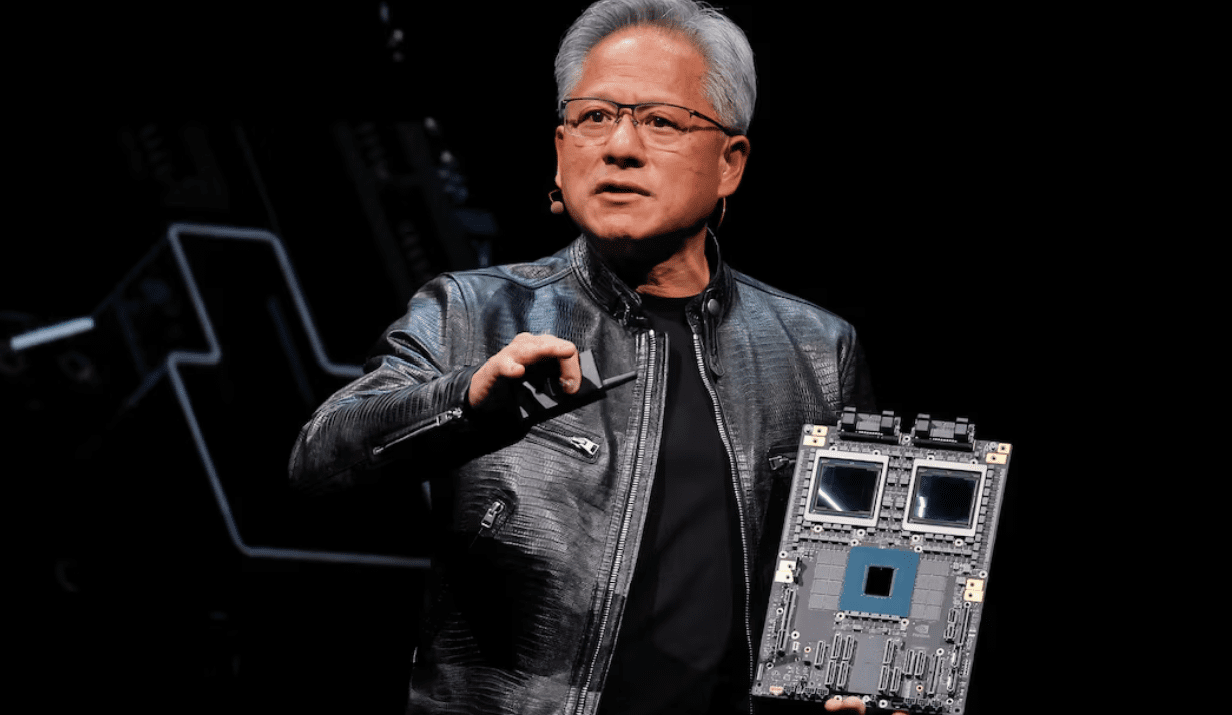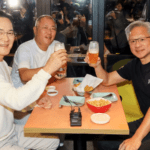Speaking in Gyeongju, South Korea, a day after Trump and China’s Xi Jinping met there, Jensen Huang called the talks “a success” but said he wasn’t aware of their details.
Trump had told reporters aboard Air Force One that semiconductors were discussed and that “China will be talking to Nvidia and others about taking chips” — though he added: “We’re not talking about the Blackwell.”
“We’re always hoping to return to China,” Huang said.
“It’s in the best interest of the United States and China. I’m hopeful both governments will reach a conclusion someday where Nvidia’s technology could be exported to China.”
Market Share in China Falls to Zero
Nvidia’s market share in China has collapsed amid tightened U.S. export restrictions. The company’s adjusted H20 chip, designed to meet current U.S. rules, has seen weak demand as Beijing pushes domestic producers like Huawei instead.
“We were hoping for non-zero market share in China,” Huang admitted.
“Now we’re expecting zero.”
He argued that U.S. fears of Chinese military use of Nvidia chips were “not logical,” adding that China’s own AI chips were already good enough for defense purposes.
“Foolish to Underestimate Huawei”
Huang warned against dismissing China’s capabilities, especially Huawei, which has unveiled plans to challenge Nvidia in high-end AI chips.
“It’s deeply uninformed to think Huawei can’t build systems,” he said.
“It’s foolish to underestimate the might of China and Huawei’s competitive spirit. This is a company with extraordinary technology.”
Jensen Huang’s message was clear: Nvidia wants back into China, but the decision has left the commercial realm and entered geopolitics.
Trump’s comment that “we’re not talking about the Blackwell” shows that the flagship chip remains off limits — and that Nvidia’s future in China depends on policy, not demand.
Related: Jensen Huang Says Nvidia Went From 95% Market Share to 0% in China










